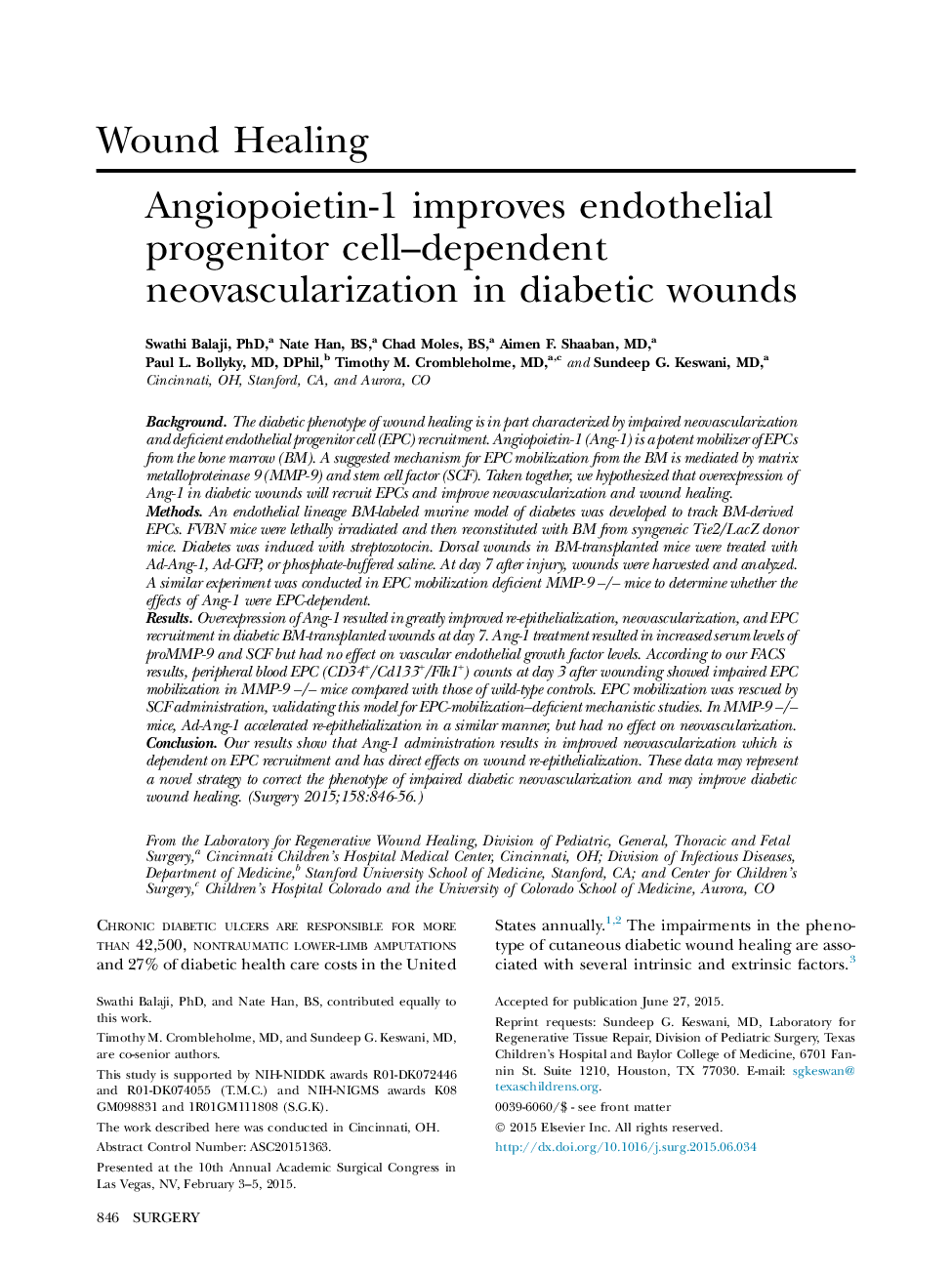| کد مقاله | کد نشریه | سال انتشار | مقاله انگلیسی | نسخه تمام متن |
|---|---|---|---|---|
| 4306715 | 1289226 | 2015 | 11 صفحه PDF | دانلود رایگان |
BackgroundThe diabetic phenotype of wound healing is in part characterized by impaired neovascularization and deficient endothelial progenitor cell (EPC) recruitment. Angiopoietin-1 (Ang-1) is a potent mobilizer of EPCs from the bone marrow (BM). A suggested mechanism for EPC mobilization from the BM is mediated by matrix metalloproteinase 9 (MMP-9) and stem cell factor (SCF). Taken together, we hypothesized that overexpression of Ang-1 in diabetic wounds will recruit EPCs and improve neovascularization and wound healing.MethodsAn endothelial lineage BM-labeled murine model of diabetes was developed to track BM-derived EPCs. FVBN mice were lethally irradiated and then reconstituted with BM from syngeneic Tie2/LacZ donor mice. Diabetes was induced with streptozotocin. Dorsal wounds in BM-transplanted mice were treated with Ad-Ang-1, Ad-GFP, or phosphate-buffered saline. At day 7 after injury, wounds were harvested and analyzed. A similar experiment was conducted in EPC mobilization deficient MMP-9 –/– mice to determine whether the effects of Ang-1 were EPC-dependent.ResultsOverexpression of Ang-1 resulted in greatly improved re-epithelialization, neovascularization, and EPC recruitment in diabetic BM-transplanted wounds at day 7. Ang-1 treatment resulted in increased serum levels of proMMP-9 and SCF but had no effect on vascular endothelial growth factor levels. According to our FACS results, peripheral blood EPC (CD34+/Cd133+/Flk1+) counts at day 3 after wounding showed impaired EPC mobilization in MMP-9 –/– mice compared with those of wild-type controls. EPC mobilization was rescued by SCF administration, validating this model for EPC-mobilization–deficient mechanistic studies. In MMP-9 –/– mice, Ad-Ang-1 accelerated re-epithelialization in a similar manner, but had no effect on neovascularization.ConclusionOur results show that Ang-1 administration results in improved neovascularization which is dependent on EPC recruitment and has direct effects on wound re-epithelialization. These data may represent a novel strategy to correct the phenotype of impaired diabetic neovascularization and may improve diabetic wound healing.
Journal: Surgery - Volume 158, Issue 3, September 2015, Pages 846–856
